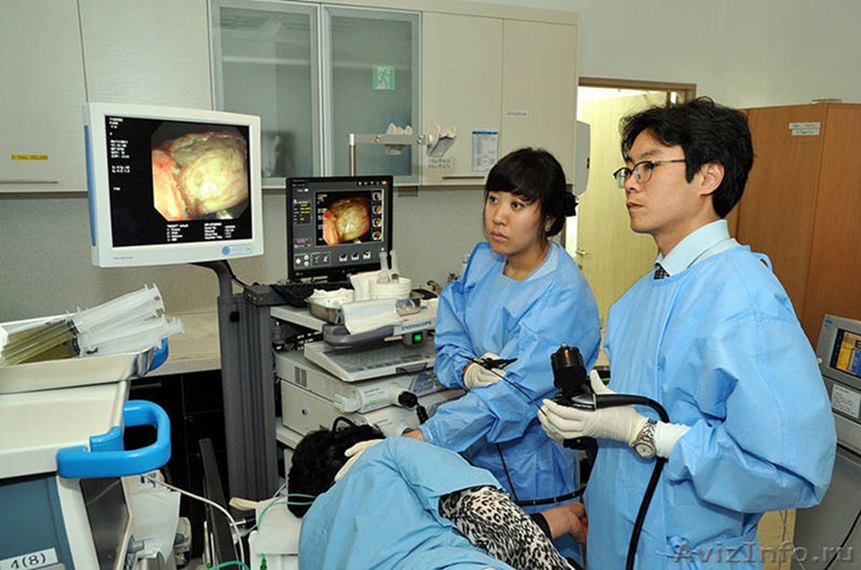Let’s briefly look at the six major possibilities that online teaching offers compared to classroom teaching. We will deal only with “learner-centric, outcome-based learning” as opposed to exam-oriented didactic coaching.
- Anytime, Anywhere Learning
The online content is available anytime, anywhere. It breaks the physical and temporal boundaries of the classroom. Once again, remember, we are not talking about a “Zoom” or “Google Meetup” lecture: the predominantly one-way memory sharing. We are talking about crisp, clear digital content intended to teach a specific topic, accessible anytime, anywhere. It can be a short video, a website, a game or even a mobile app. Creating quality content takes time, effort, technology and a skilled team. It draws on all the pedagogical skills and experience of the teacher. The awareness the teacher has of her learners’ styles, attitudes, backgrounds and skills are the priceless assets. No MOOC can replace the customisation that each teacher can deliver for her set of learners. The online content can be immensely richer, engaging and supportive to learning than plain text and diagrams. The content can and must capture the learner’s attention. The onus is on the learner to find a suitable place and time to learn. And more importantly, they are allowed to learn at their own pace without peer pressure.
- Active Engagement
Online learning is not sitting idly and staring at a screen mindlessly. It is the responsibility and duty of the teacher to prevent it from becoming so. The learner must be engaged with cognitive tasks that are seamlessly integrated into the content. The design and placement of these tasks demand the pedagogical skills of the teacher and her familiarity with the students. The digital canvas allows the learner responses and queries to be recorded and analysed, with no learner left behind. These are verifiable and valid forms of engagement. They leverage all the potential that the digital world offers. And every single learner benefits from these at their own pace in their own comfort space. There is no front bench, middle bench or backbench, no waiting for the final bell or bullied silence of questioning. E-learning ecologies are platforms for autonomy. Learning is not undertaken under disciplined compliance. It is enjoyed by autonomously. It creates intrinsically motivated learners in contrast to the exam-stressed memory receptacles of verbal knowledge paralysed in the classroom.
- Formative Assessments & Recursive Feedback
The design-based and projects-based curriculum goes a long way in facilitating assessment of real-world readiness. With advances in AI and Machine Learning, virtual labs and virtual internships with amazing richness are being developed. Armed with any time, anywhere, actively engaging digital knowledge content, students have more time and capability to undertake meaningful projects. The online assessment produces incredible amounts of data that can provide deep insights for the teacher. The time students took to answer a particular question, the steps in the answering process when they paused, the questions that many students answered wrong and so on can lay bare the learning gaps the teacher may never glean by checking the individual answer sheets. In the learner-centric, outcome-based education, formative assessment is truly formative only when coupled with recursive/repetitive feedback. In a physical classroom with its time limitations, it is impossible for the teacher to provide individualised feedback at the end of each assessment within the class hour. The face to face nature of interaction undermines the possibility of objective, contextualised feedback. Online feedback offers the potential to provide a work-specific, topical, relevant verbal response that is personalised and private. The teacher can easily comment on the student’s work from anywhere, anytime. It is said that the single greatest innovation for online learning is the “Resubmit” button. The possibility for the learner to continuously improve their work after incorporating feedback caters directly to the goal of Mastery that drives intrinsic motivation. In a conventional exam, the effort of the learner over the duration of the course is judged by what happens in a couple of hours. So many things prevent their best performance. And they carry the stigma of the “result” for life.
- Multimodal Knowledge Creation
In the traditional classroom with paper-based assignments, the mode of knowledge creation is limited to writing/typing/printing. More than the damage of blatant plagiarism that it leads to, it limits the creativity of the learner to this single outlet. By contrast, online channels allow multimodal knowledge creation. The learner can produce their work as a video, a website, audio, an interactive app and so on. Online teaching provides the teacher with an expanded multimodal toolkit to create and present the knowledge and to engage and assess the student learning with such knowledge. Staying on the metaphor of toolkit and craftsmanship, online teaching provides the teacher with a brilliant opportunity to showcase to the student’s exemplary models of work that they can aspire to.
- Differentiated Learning and Collaborative Intelligence
Each individual learner is different. Be it kindergarten or graduate school, each student comes with different propensities, attitudes and backgrounds. We throw the same lecture at them based on a syllabus designed for the average to be tested using an exam that will classify them as above average and the below-average! With online teaching, as Dr Todd Rose has pointed out in ‘The End of Average’, we now have the opportunity and tools to deliver truly differentiated education. Anytime, anywhere learning along with multimodal possibility affords the customisation that is truly learner-centric. The teacher can gather plenty of helpful data from the e-learning system to help her tweak the content and the formative assessments to fit the learning to the learner’s profile as much as possible. And in an ecosystem with learners passionately involved with the process, we have the opportunity to tap into collaborative intelligence that enhances each learner’s trajectory. These “Affinity Spaces” which bring together individuals who are passionate about the same thing are an incredible learning environment that the digital world offers. The comment boxes and chat windows can become affinity spaces where the individual bits of intelligence collaborate, seamlessly switch between trainer-trainee roles and produce teamwork that improves everyone’s skills. Such digital spaces once created can sustain forever inviting newer groups of learners to track the history of the creative interaction and add their own contribution. The online collaborative environment does not have the limitations of time and space that a physical classroom has. Collaborative intelligence can also be tapped into using peer reviews easily facilitated by online education. We can fine-tune our learning from the analysis of the work of others, especially peers. With machine-mediated learning and assessment and AI-based systems, collaborative intelligence takes on a new meaning of human plus AI teamwork. Latest tech tools have the potential to be much more than passive assisting tools. They can be “collaborators” with their inbuilt knowledge and knowledge manipulation capabilities. Next-generation learning involves learning using them, learning to use them and learning with them.
- Metacognition in Online Teaching
In a structured classroom that groups all the minds together according to their age and tests them en-bloc through an end of term exam, there is absolutely no possibility for developing metacognition. Are the social skills purportedly delivered by a system that ultimately creates a social division based on test scores at the end of a single mode of learning worth it? It is only with deliberate practice, deeper analysis of past work, collaborative creation and mindful reflection that the mind can truly grow. Probably why it takes something like a PhD or long thesis program at postgraduate level to even offer this as a possibility in the current system. With the differentiated learning, collaborative intelligence and multimodal knowledge creation discussed in the earlier articles, online education and e-learning ecologies afford metacognition from a very early stage. Learning at their own pace, in their comfortable space, assisted by formative assessments with supportive feedback, learners can be guided to develop the essential “growth mindset” as defined by Carol Dweck. This would lead to a much better-prepared generation of learners than those disabled with the “fixed mindset” of capabilities catered to by the rigidity of common instruction and one-shot common exam. Each learner forced to repeatedly say “I don’t know” in the classroom can be transformed to the “I don’t know…yet!” mindset with the unpressured freedom provided by the tools of engaging learning and customised teaching that the digital realm offers.
Title Image Courtesy https://www.indiatoday.in/education-today
Disclaimer: The views and opinions expressed by the author do not necessarily reflect the views of the Government of India and Defence Research and Studies
Selected References
https://www.gettingsmart.com/2019/10/metacognition-and-why-it-matters-in-education/ https://www.ted.com/talks/carol_dweck_the_power_of_believing_that_you_can_improve https://www.heacademy.ac.uk/sites/default/files/resources/id477_aligning_teaching_for_constru cting_learning.pdf, https://en.wikipedia.org/wiki/Situated_cognition https://www.amazon.in/How-We-Learn-Brains-Machine/dp/0525559884, Cognitive Conceptions of Learning Thomas J. Shuell, Review of Educational Research, Vol. 56, No. 4 (Winter, 1986), pp. 411-436 https://www.danpink.com/drive./ https://en.wikipedia.org/wiki/Design-based_learning, https://www.sciencedirect.com/science/article/pii/S1877042810002429, http://www.virtualinterns.org,https://www.merittrac.com/blog/4-ways-ai-can-help-scale-exams-an d-enhance-learning-outcomes, https://www.amazon.in/Power-Other-Henry-Cloud/dp/0061777145, https://www.youtube.com/watch?v=cWMH_X4IvOk https://www.amazon.in/Thanks-Feedback-Science-Receiving-Well-ebook/dp/B00F10Z4GO https://www.thestar.com/news/insight/2016/01/16/when-us-air-force-discovered-the-flaw-of-aver ages.html, https://www.youtube.com/watch?v=-34 ASwa_Ztk, Gee, J.P. (2007). What video games have to teach us about learning and literacy (2nd ed.). New York, NY: Palgrave/Macmillan, https://en.wikipedia.org/wiki/Affinity_space https://www.edge.org/response-detail/25436, http://jamespaulgee.com/pdfs/Experience,%20Memory,%20Language,%20and%20Learning.pdf http://www.ascd.org/publications/educational-leadership/apr93/vol50/num07/On-Teaching-for-U nderstanding@-A-Conversation-with-Howard-Gardner.aspx, https://newlearningonline.com/kalantzis-and-cope/website-overview, https://www.simplypsychology.org/Zone-of-Proximal-Development.html, https://eleducation.org/news/models-of-excellence-in-the-classroom-lifts-learning, https://link.springer.com/chapter/10.1007/978-3-319-67615-9_1








